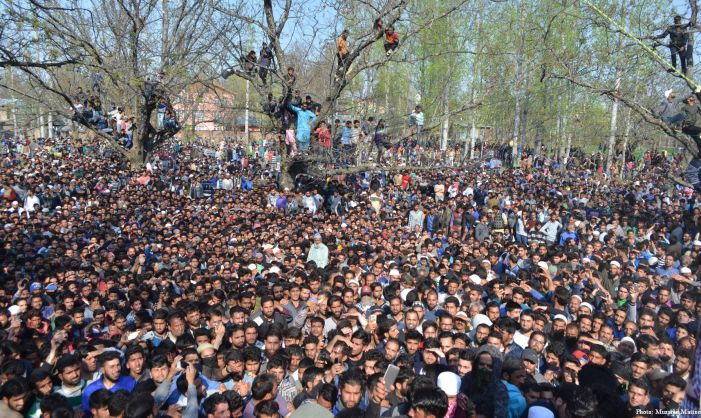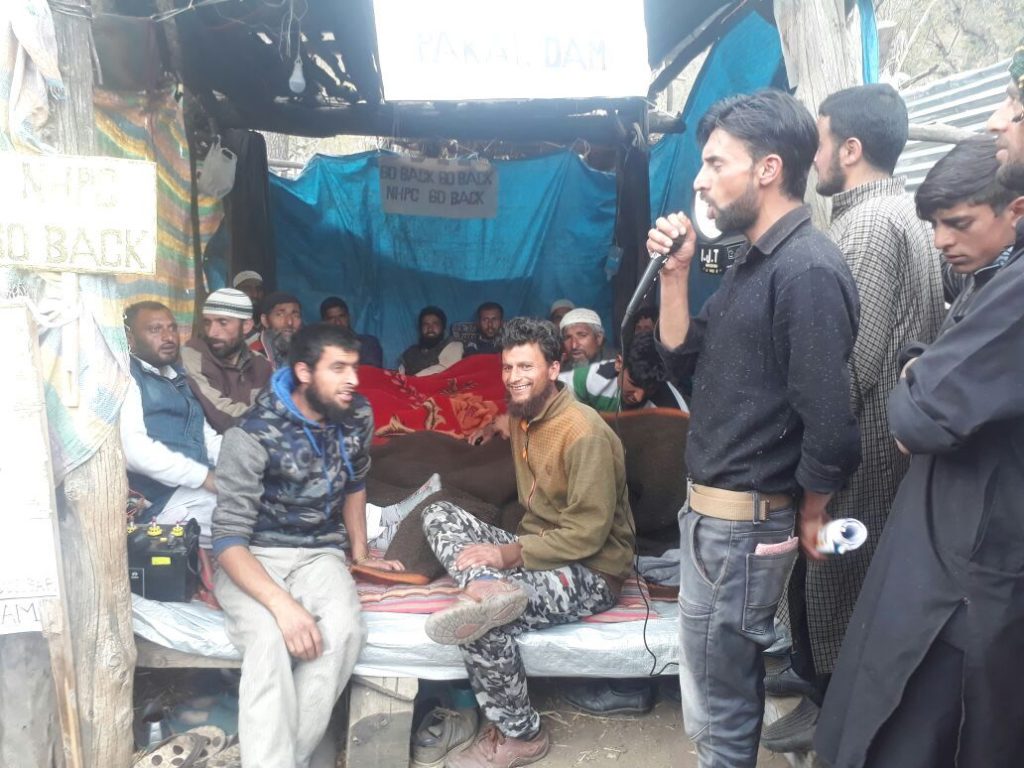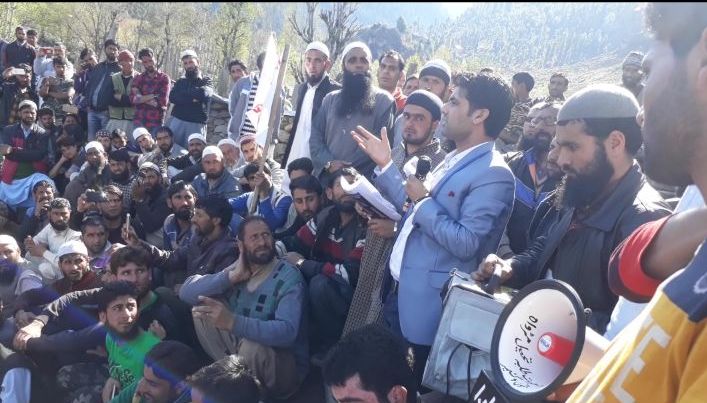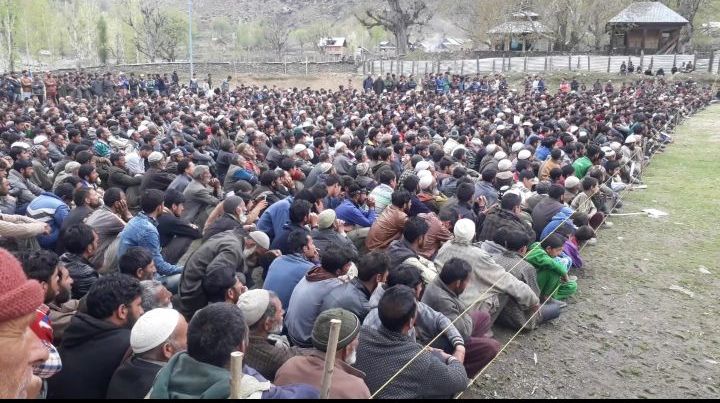30 days and counting: Marwah villagers continue their hunger strike against Bursar Dam in Jammu

By TCN News
Marwah (Kishtwar): The residents of dozens of villages in Marwah Tehsil of Kishtwar district, Jammu are on a hunger strike since April 5, 2018, against the planned construction of Bursar Hydroelectric Power Project on Marusudar river, which is a tributary of river Chenab and passes through dozens of villages in Marwah.
The local villagers mostly farmers, labourers, and students have been protesting and resisting the planned construction of the power project since October 2017.
“Nobody is listening to us. Our voices don’t reach to the power corridors of the state because we live in one of the remotest areas of J&K which remains cut off from the rest of the country for more than six months in winters. There is no development in our region. No roads and electricity,” said Sheikh Zafar, President Marwah Bachao Tehreek.

“Now this dam will displace thousands of the families destroying our existence and we won’t allow it any cost.”
Zafar on the behalf of the villagers has further said that the protests will continue until Bursar dam is canceled because villagers are not ready in any circumstance to hand over their lands and houses.
“We won’t accept any compensation or job at the cost of our motherland. Even though people in this region are illiterate but they know well that this dam will destroy their existence and render them landless,” he added.

The Deputy Commissioner Kishtwar behaves more like a dictator than a public servant, says Zafar.
“Neither DC nor local MLA or MLC have visited to address our grievances,” Zafar said.
He further questioned the environment clearance given by the central government to the dam despite the fact that dam is within a ten-km radius of Kishtwar High Altitude National Park (KHANP).
Out of 17.79 square kilometres of land that was required for construction of Bursar Project, 5.34 square kilometers was part of Kishtwar High Altitude National Park (KHANP). Surprisingly on July 6, 2015, the Department of Forest, Environment & Ecology, Jammu and Kashmir, issued a notification (SRO Notification no. 212) readjusting the boundaries, thus excluding the portion of land which was earlier a protected area.

According to Environmental Impact Assessment (EIA) report tabled by experts from Kashmir University in September 2017, the construction of the dam will affect seven revenue villages comprising 18 hamlets. Out of total 1,052 families which will be affected families, 336 families (1,673 persons) will be displaced from their villages.
The project is planned as a storage scheme on river Marusudar with an installed capacity of 800 MW. The dam will be the first storage project constructed by India under the Indus Waters Treaty, 1960, which has granted a permissible storage of 3.6 million acre-foot (MAF).
A group of ten people from different villages are observing hunger strike since April 5, 2018. They say that it is the last medium left with them to express their opposition against the dam.
